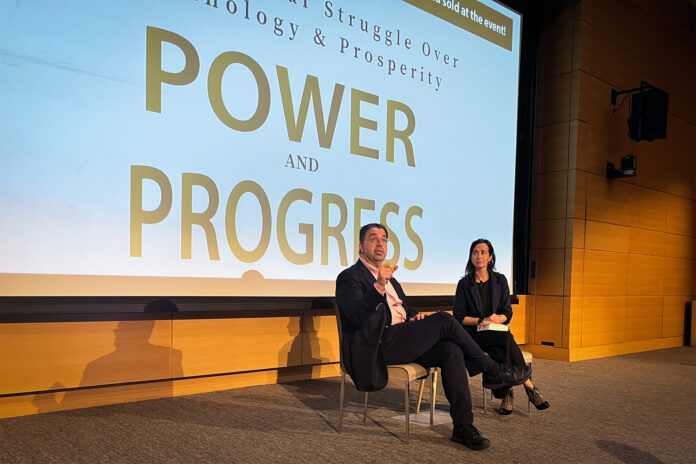The Future of Artificial Intelligence: A New Perspective
The concept of artificial intelligence (AI) is often discussed as a replacement for human intelligence, with the potential to replicate human work and replace jobs. However, there is an alternative future where AI provides "machine usefulness" for human workers, augmenting their abilities and creating productivity gains and prosperity.
The Current Direction of AI
MIT economist Daron Acemoglu warns that society is moving in a different direction, one where AI replaces jobs, increases surveillance, and reinforces economic inequality, concentrating power in the hands of the ultra-wealthy. Acemoglu emphasizes that the choices made regarding AI will have transformative and consequential effects on society.
The Impact of Technology on Society
Major innovations, including AI, are often tied to matters of societal power and control. Technology can increase productivity, but the question remains how the benefits are shared. Acemoglu notes that AI can bring broad-based benefits or enrich a narrow elite. When innovations augment workers’ tasks, it creates conditions for prosperity to spread to the workforce.
The Objective of AI
The goal of AI should not be to make machines intelligent, but to make them more useful to humans. Acemoglu stresses that the focus should be on creating conditions where prosperity can spread to the workforce, rather than replacing workers with machines.
Historical Examples
Acemoglu draws on historical examples to illustrate that the widespread benefits of new technology cannot be assumed. The Industrial Revolution, for instance, took over 100 years to yield productivity gains that were widely shared. Similarly, Eli Whitney’s invention of the cotton gin worsened the conditions of slavery in the U.S.
The Productivity Bandwagon
Acemoglu and his co-author, Simon Johnson, introduce the concept of "The Productivity Bandwagon," where technological innovation is adapted to help workers, not replace them, spreading economic growth more widely. This condition is not automatic and requires significant worker power, which has eroded in recent decades.
The Importance of Worker Power
Worker power is crucial in determining how technology is implemented and whether its benefits are shared widely. Acemoglu notes that the erosion of worker power has made it less likely that technologies will be used to help the labor force. However, there is a tradition among technologists to make machines more usable and useful to humans, and AI could pursue this path.
The Dangers of Automation
Acemoglu warns that overemphasizing automation may not yield significant productivity gains, as some technologies may be cheaper than human workers but not more productive. He also notes that the advent of AI may have a different impact on developing countries in the Global South.
Conclusion
The future of AI is not set in stone, and it is still possible to redirect technology to benefit society as a whole. Acemoglu emphasizes that workers, policymakers, and technologists must work together to ensure that AI is developed and implemented in a way that promotes prosperity and equality. The choices made regarding AI will have far-reaching consequences, and it is essential to consider the potential effects on workers, societies, and the global economy. Ultimately, the goal should be to create a future where AI provides "machine usefulness" for human workers, augmenting their abilities and creating a more equitable and prosperous world.

